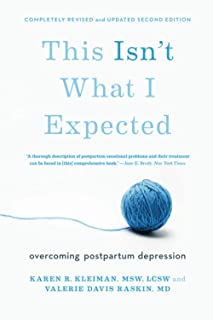Postpartum Depression
Cluster Number:
Wiki Number: PW171
Diagnosis: Postpartum Depression
US Patients: 15% of new mothers; 1-26% of new fathers; postpartum psychosis-.1-.2 of 1% leading to 8 per 100,000 new baby murders In the US
World Patients: 17.7% world-wide; In US, African-American women have 25%; Asian-11.5%; other mothers in-between %s.
Sex Ratio: 80% of new mothers have milder “baby blues” which resolve in two weeks.
Age Onset: 1 week to 1 month after childbirth lasting more than two weeks; may also occur after miscarriage
Brain Area: Less activity in left frontal lobe; more in right frontal lobe, decreased connectivity for emotional-regulation; more amygdala arousal
Symptoms: extreme sadness and fatigue; can also affect the child, difficulty bonding, suicidal thoughts, worry about harming self or baby
Progression: 1/3 of women experience violence from men which increases postpartum depression
Causes: horomonal changes, sleep deprivation; synthetic oxycontin to induce birth; smoking, poverty, lack of emotional support
Medications: antidepressants, unless breast-feeding; SSRIs
Therapies: CBT and Interpersonal Therapy; light aerobic exercise may help in mild or moderate cases.
Youtube Video: Parenting through Postpartum Depression
Amazon or Library Book:
This Isn’t What I Expected – Overcoming Postpartum Depression
Click the book to link or order from Amazon.

